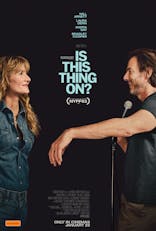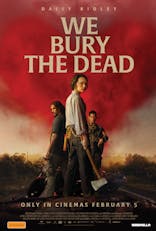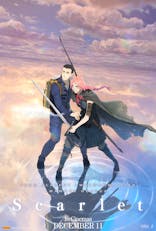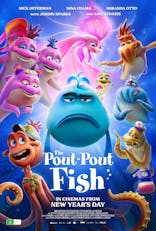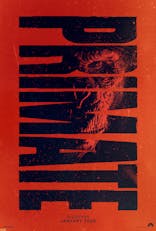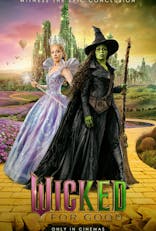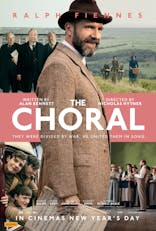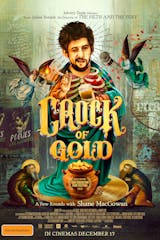
Crock of Gold: A Few Rounds with Shane MacGowan
Strong themes, sex and coarse language

A cinematic exploration of Shane MacGowan’s story, from his salad days, growing up in Ireland, forming the Pogues & conquering the known universe, all with drink in hand!
This is Shane’s story, as told by Shane and a small, intimate cast of close friends and family members.
We open courtesy of a Disneyesque animation, descending upon the Emerald Isle from high, before swooping into a small farmhouse in Tipperary, where we find young Shane singing on the kitchen table. Via narration, modern-day Shane reveals that he had been “Chosen by God to save Irish music”. When asked why, he replies: “Cuz God is Irish!”
Through images of Catholic mass and the bucolic tones of agricultural subsistence, we revisit the age-worn house and surrounds of Shane’s Irish youth where we learn that his drinking commenced aged five, when his uncles and aunties fed him Guinness as a soporific. Moving between cartoonish innocence and physical disrepair, we see the boy drunk on a ‘baby powers’ (two shots of whiskey) talking to farmyard animals and the cultural paragon years later, a pale-faced apparition of bar-side wisdom. In this respect, ‘A Few Rounds With Shane MacGowan’ juxtaposes time and space and instils a dream-like flow to the narrative.
We then proceed to travel with Shane, crisscrossing the Irish Sea, from Tipperary to London. Here we come to know Shane as the exiled, migrant soul, where his sister, Siobhan, articulates a different view on their childhood, highlighting the fluid, shifting nature of memory and fiction in the artist’s imagination.
A prodigiously talented boy and acutely aware of the Irishman’s second-class citizenship in England, MacGowan ironically wins a scholarship to attend Westminster School. Further displaced in the ivory tower, with the Troubles resounding outside its walls, the young artist finds a voice in punk and a vehicle in hallucinogens. He is expelled for dealing drugs to rich kids.
“Instrument of Death” is the first song he writes, whilst in isolation after being admitted to a mental asylum. Soon after his release, he forms The Nipple Erectors and his family celebrate punk as a safe home for his maverick spirit. Then, whilst in the midst of an IRA bombing campaign in 1982, MacGowan founds The Pogues - his way of serving his country - and in doing so, amplifying the Irish vernacular beyond borders via enemy airwaves. Powerfully re-appropriating the English stereotype of the drunken, singing ‘paddy’, MacGowan’s music takes strength from persecution and shines a light for Irish diaspora the world over. “You want Paddy, I’ll give you fucking Paddy!”.
We watch on as The Pogues explode onto the music scene and Shane enter the cultural conversation - the bands’ sound injecting a whole new fire into Irish music, with their full throttle, streetwise punk attitude, playing traditional Irish instruments and songs at breakneck speed. And through this prism of music, we continue to examine the themes that weave in and out of the film – the social, political and cultural history of Ireland, the shock of London Punk, Shane’s never-ending battles with drugs and alcohol - all responsible for shaping the haunting majesty of his own melodies and the coruscating power of his lyrics, comparable to the likes of Brendan Behan, James Joyce and William Blake.
However, it does not take long before the bands’ success takes its toll and Shane comes to experience a second exile. This time, he is separated from himself in a fugue of drugs and money-hungry management. His ‘Fairytale of New York’ - itself a song of Irish displacement, becomes the most popular Christmas song of the 21st Century: both fulfilling the mock-prophecy of his ‘chosen-ness’ and condemning him to the unreality of fame.
Whilst touring in New Zealand, we hallucinate with the artist Ralph Steadman, who visualizes Shane’s break with reality, as he speaks of talking to Maori warriors on some industrial strength Aotearoan speed. “Get the blue paint off you!” his manager screams before an impending show. “He never came back from that tour”, his sister adds.
Soon enough, Shane is kicked out of the Pogues after falling from a moving car in Tokyo and slipping into three-day coma. However elated his personal feelings on the subject might be, he finds himself in the asylum again. That said, even at this low point, his songs are becoming standards woven into the Irish poetic tradition, contrasting Shane’s feral existence with a new epoch in Irish history scored by his lyricism.
After a slew of deeply personal conversations with the likes of Johnny Depp, Gerry Adams, Bobby Gillespie, wife Victoria Mary Clarke and father Maurice - to name a few, all woven into the fabric of the structure in which Temple deploys varied slices of animation and much never-before-seen archive, the ending of the film celebrates his 60th birthday with a concert where Bono, Nick Cave and Depp himself perform Shane’s songs, amongst many others, as he is awarded a lifetime achievement award by the president of Ireland, Michael D. Higgins.
The film’s final moment does not face mortality but rather poses the question: “What would you like next from life?” After discussing his hope to write prolifically once more, Shane takes a moments’ pause, before remarking that he’d like to be able to play pool again. A true MacGowan line, for his unique brand of storytelling is forever suffused with comedy: we find ourselves laughing our way out of the saddest of moments.
- Director
- Julien Temple
- Cast
- Nick Cave, Johnny Depp, Bono, Bobby Gillespie, Shane MacGowan, Gerry Adams, The Pogues
- Genre
- Biography, Documentary, Musical
- Rating
- MA (Strong themes, sex and coarse language)
- Release Date
- 24 May 2024
- Runtime
- 144 min








